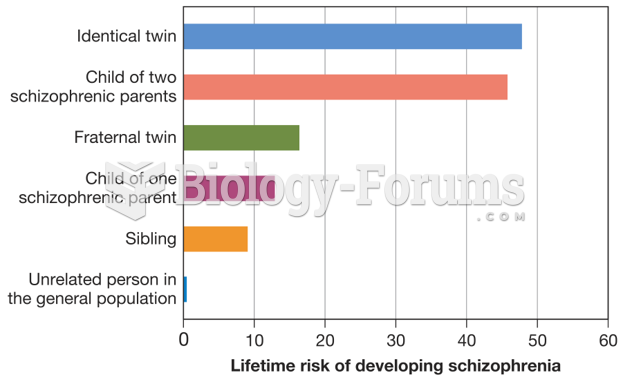|
|
|
Did you know?
Blood is approximately twice as thick as water because of the cells and other components found in it.
Did you know?
Vaccines cause herd immunity. If the majority of people in a community have been vaccinated against a disease, an unvaccinated person is less likely to get the disease since others are less likely to become sick from it and spread the disease.
Did you know?
The average human gut is home to perhaps 500 to 1,000 different species of bacteria.
Did you know?
There are 20 feet of blood vessels in each square inch of human skin.
Did you know?
The Romans did not use numerals to indicate fractions but instead used words to indicate parts of a whole.







